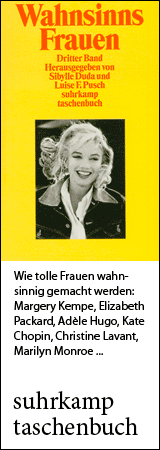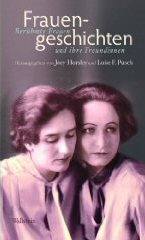
born on May 12, 1929 in Budapest, Hungary
died on July 19, 2019 in Balatonalmádi, Hungary
Hungarian philosopher
5th anniversary of her death on July 19, 2024
Biography
Her father, a Budapest lawyer, believed that work as a homemaker was not for Agnes; he envisaged her as a philosopher or a composer instead. His reasoning: “because it's the most absurd thing for a girl to do, and I want the most absurd for you.” Agnes Heller became one of the most important philosophers of the 20th century. She had initially planned to study chemistry, and then physics, but after listening to a lecture delivered by Georg Lukács she immediately realized that she wanted to learn to understand what she did not yet understand. She became Lukács' student and soon thereafter his assistant. She was destined for a career in academia.
As a persecuted Jew, she became a passionate Zionist, Marxist and Communist after 1945; she was enthralled by the historical optimism and the concept of salvation present in these world views. Many of her family members in Budapest, Vienna and Brno had disappeared in concentration camps. Her father had died in Auschwitz. She and her mother had feared for their lives several times. The Arrow Cross Party, a nationalist and anti-Semitic group in Hungary, had gained political power in 1944 with the help of the German occupiers and had carried out a bloody campaign of terror, particularly against the Jewish population.
Agnes and her mother fled several times to a different part of Budapest to escape the raids. They were eventually caught and forced with many others – including fourteen-year-old Imre Kertész who walked alongside them – to march to the train station for their deportation. Agnes shouted to her mother to jump onto a passing streetcar with her, and they thus managed to escape. The Arrow Cross also organized the mass murders of Jews by lining them up on the banks of the Danube and shooting them; the bodies would then fall into the river. One day Agnes and her mother found themselves among those standing on the banks of the river. Agnes wanted to jump into the water before being hit by a bullet. But the firing squad suddenly stopped its executions and she and her mother were able to run away. Agnes Heller suffered from severe anxiety for years. She could neither go near the banks of the Danube nor cross over it on a bridge. The gray swirls of the river haunted her, with the Danube and the fear of death merging into a single nightmare.
Agnes graduated from high school in 1947, got married in 1949 and gave birth to a daughter. This marriage ended in divorce, and soon afterwards she married the student and later literary critic and philosopher Ferenc Fehér, with whom she often published together. A son was born in 1964.
Agnes and her husband were members of the Budapest School of philosophy that had formed around Georg Lukács. The post-war years were marked by shortages of food, heating and clothing but by an abundance of passionate discussions about philosophical and literary topics with like-minded people and Jewish fellow sufferers. They had all been scarred by the persecution. Fehér had had to cart corpses out of the ghetto as a ten-year-old. They had all lost close relatives in concentration camps.
Agnes Heller published extensively, and soon came into conflict with the Communist Party. She was accused of disloyalty; she was expelled from the party, and lost her position at the university. She taught at a girls' grammar school for five years. She did not accept the restrictive views of the party. With intrigues and denunciations rampant among the Hungarian intelligentsia, Heller soon found herself banned from publishing and ostracized by former friends who were fearful of socializing with her.
Hoping for liberation from communist indoctrination; she experienced the Hungarian uprising of 1956 as a period of rejuvenation, but ultimately no lasting relief followed. She loved Hungary so much that fleeing abroad was not an option for her. “I am a Hungarian Jew and I love the Hungarian language” was the explanation that she gave in her autobiography. She emphasized that the aim of her philosophy was to build a new world: “all my life I wanted to understand Auschwitz and Stalinism, which is why I concentrated on the philosophy of history and on moral philosophy.”
In 1973/74, a philosophers' congress was held in Hungary, during which appointed experts were to decide whether Heller's work contained counter-revolutionary and right-wing deviant content. Once again, members of the Budapest School were persecuted. House searches, spying and bugs hidden in the apartment made life unbearable. Once again, Agnes and Ferenc lost their jobs. They had to turn to translating to make ends meet. In 1978, Heller accepted a professorship at La Trobe University in Melbourne and the couple emigrated to Australia. She had become internationally known through her publications with Feltrinelli in Italy. She then had to learn to formulate her thoughts in a new language. She enjoyed the freedom, travelled across Europe and attended international congresses. She acquired Australian citizenship in addition to her Hungarian citizenship. In 1984, she was awarded the Hannah Arendt Professorship at the New School for Social Research (New School University) in New York. In 1981 she was awarded the Lessing Prize of the City of Hamburg and in 1995 the Hannah Arendt Prize of the City of Bremen. This was followed by guest professorships, guest lectures and many awards. She had long since turned her back on Marxism and communism, and all other isms had also become suspect to her. She worked on her own personal philosophy. The starting point of her thinking was the needs, conflicts and problems of everyday life and the confrontation with the fate of modernity.
Agnes Heller retired and lived in Budapest for half a year and in New York City for the other half. In addition to her academic interests, she devoted herself to music, literature, the visual arts, and to her duties as a soccer fan.
(Text from 2003; translated with DeepL.com; edited by Ramona Fararo, 2024)
Agnes Heller died on July 19, 2019 in Balatonalmádi, Hungary.
Please consult the German version for additional information (pictures, sources, videos, bibliography).
Author: Sibylle Duda
Quotes
“Ági, don't lean out of the window, the soot will fly into your eyes,” her mother would warn her when as a young girl she tried to catch a glimpse of the yellow streetcar on the banks of the Danube. Ágnes Heller exposed herself to risks all her life. She was born on May 12, 1929 in Budapest, a city which has always evoked feelings of home for the philosopher. Budapest: where her father, later deported, was born; the city on the banks of the Danube, the river that flowed red with blood during the Arrow Cross regime; where she attended her first Lukács lecture, understanding almost nothing, but recognizing that “this was the most important thing I had ever heard.” She became Georg Lukács' star student and his confidante. She talks about the euphoria before 1956, and the “fog monastery” (the Budapest School that was spied on and ostracized during the Kádár era), about pariahs and parvenus and about the existential question of why the truth is vital for the philosopher. Bans on academic work and publishing, spying, emigration. Ágnes Heller moved to Australia in 1977. In 1988, she was awarded the Hannah Arendt Professorship at the New School in New York. Ágnes Heller talks about encounters with Ernst Bloch and Jürgen Habermas and with millionaires such as George Soros. And the grande dame of Hungarian philosophy talks about the beauty of good people. “Good people,” says Ágnes Heller in Budapest, a city now once again marked by gag orders, “are invisible.”
(Accompanying text to the program “The beauty of good people: A Long Night with Ágnes Heller” by Jochanan Shelliem on Deutschlandfunk radio to mark Agnes Heller's 90th birthday on May 12, 2019)
If you hold the rights to one or more of the images on this page and object to its/their appearance here, please contact Fembio.



